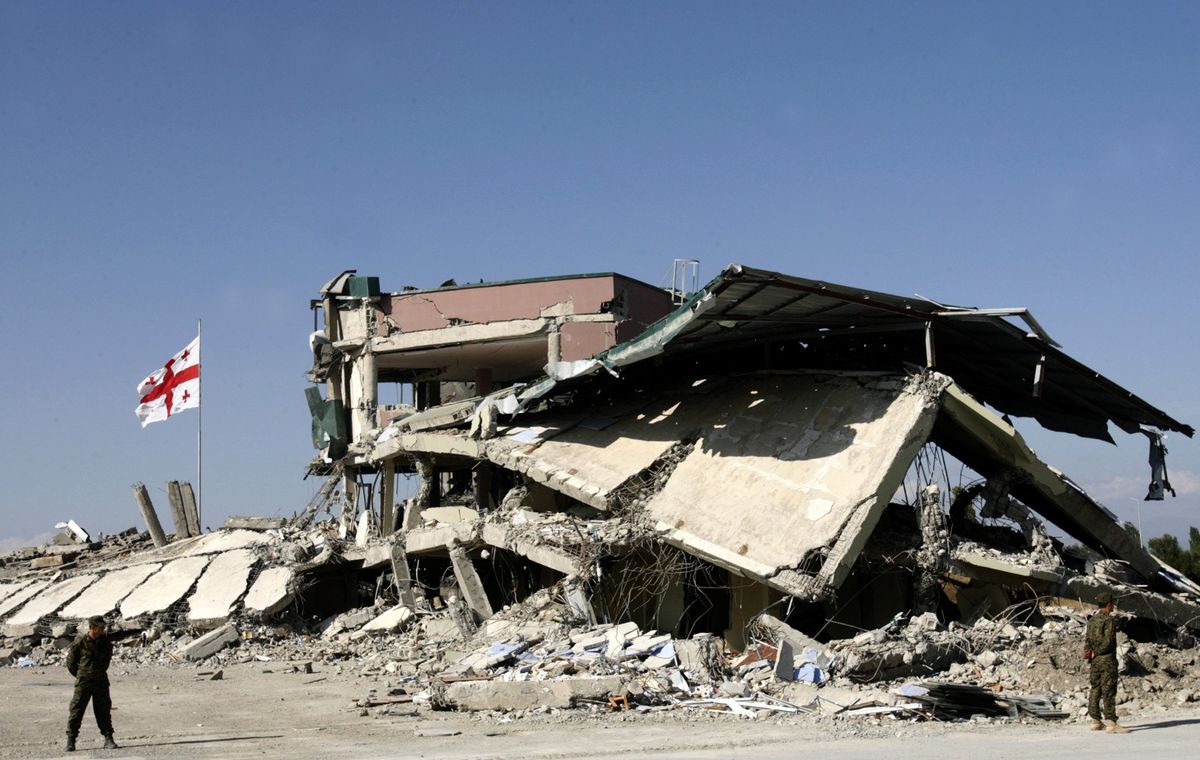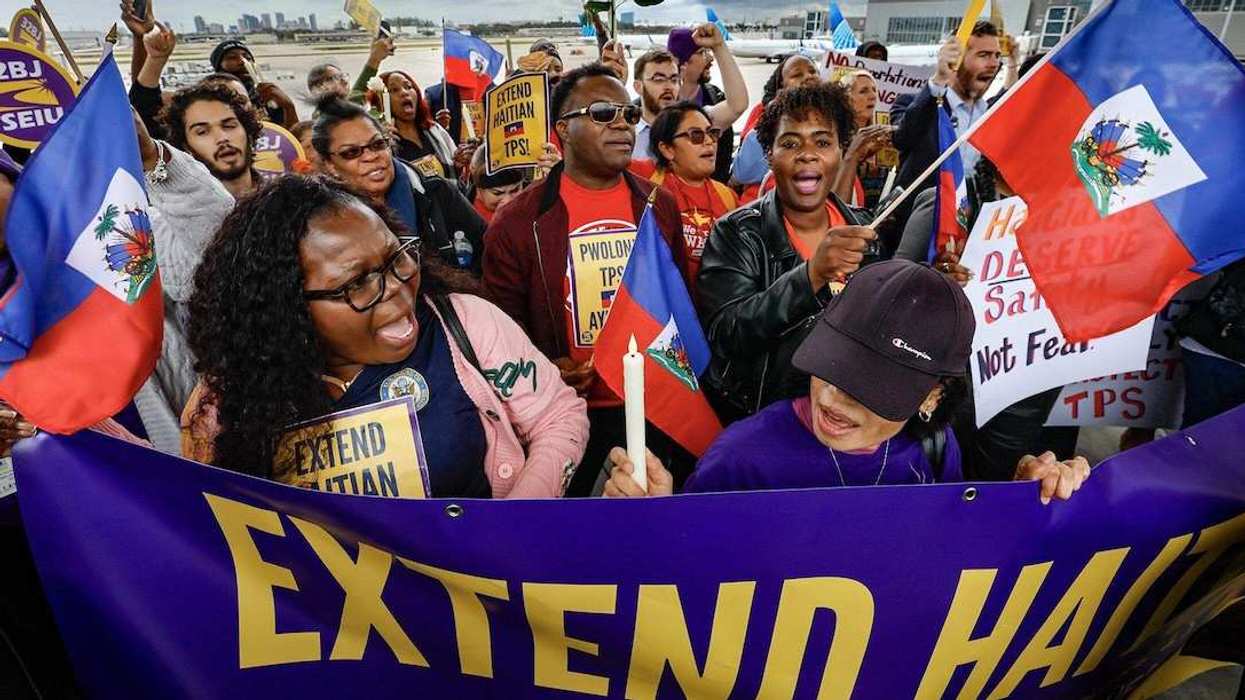Georgia marks the 15th anniversary of the outbreak of the Russo-Georgian war this month. In 2008, a conflict between Russian-backed separatist forces in Georgia’s breakaway South Ossetia and Georgian troops sparked a Russian invasion of the South Caucasus country. To this day, 20% of Georgia remains occupied by pro-Russian forces.
The war was just one piece of the struggle in a long, complicated chain of events leading to the first full-scale, conventional war in Europe since the end of the Cold War.
GZERO Daily spoke with Tinatin Japaridze, a Eurasian political risk analyst at Eurasia Group and a native Georgian, to see what the world has learned 15 years on. She discussed whether the war in Ukraine could have been prevented if the West had responded more effectively in 2008 to Russia’s unprovoked aggression against its southern neighbor.
When the war broke out in 2008, Japaridze ran the UN Bureau for Eastern Europe in New York City and hosted her own show on UN Radio. Though covering conflicts wasn’t her usual role, this one was a particularly thorny issue for a Georgian-born journalist who had spent her formative years in the Russian capital.
“The sheer fact of my once-adopted country, where I had created a home for myself as a child in Moscow, invading my Motherland and threatening to roll tanks into my hometown, Tbilisi, was unbearable,” she says.
GZERO: Has the discourse surrounding the controversial question of “who started it” been largely resolved?
Tinatin Japaridze: Quite the contrary. The discourse still dominates every August War discussion in Georgia today. Ultimately, the answer to this complex question depends on how far back in history we decide to go. The war did not begin on August 1, 7, or even the 8th, as the Kremlin and Russian state-run media have long claimed in an effort to shift the blame to Georgia for firing the first shot. Nor was the so-called “five-day war” over on Aug. 12, 15, or 22.
One thing is certain: Referring to Aug. 7 or Aug. 8 as the start of the war, as if these were mere dates that don’t convey drastically different narratives, is extremely problematic. Marking the war’s anniversary on Aug. 7 places the blame officially on Moscow for starting its full-scale military aggression against Georgia. Recognizing Aug. 8 as the start date, on the other hand, plays into the Russian political narrative, which insists that its forces only attacked Georgia in response to the Georgian shelling of Tskhinvali in South Ossetia.
Endless spats over these dates and “who shot first” leave no room for an actual discussion about what happened and, more importantly, how to resolve the frozen conflict and reclaim the breakaway territories that remain occupied by Russia.
We also have to remember that the August War has deep roots that predate Russian tanks rolling into Georgia in 2008. Deterioration of relations between Moscow and Tbilisi can be traced back to the 2003 Rose Revolution that served as a major irritant for the Kremlin, propelling pro-Western Mikheil Saakashvili to power the following year. Russia interpreted Georgia’s clear pivot to the West as a red flag that threatened to eventually position Tbilisi as an eastern anchor in a chain of NATO allies stretching from Warsaw to Ankara.
GZERO: When Russia launched its full-scale invasion against another neighbor 14 years later, Western media headlines were quick to draw parallels between 2008 and 2022. Do you agree with such comparisons?
Japaridze: There are undeniably some similarities in terms of the Kremlin’s “signature” plastered all over its incursions into sovereign lands that Moscow still considers to be in its own backyard, so to speak. But overstating parallels between Georgia in 2008 and Ukraine today leads to a deeper misunderstanding of both conflicts.
Most notably, Russian President Vladimir Putin does not view Ukraine as a truly sovereign country that can and should exist independently of Russia. We all recall his revisionist history lecture on the night of the full-scale invasion when the Russian leader reminded his compatriots that Ukraine as a country was “created by Russia,” and he hailed another Vladimir — Lenin — as its chief architect.
It became apparent within hours of Feb. 24, 2022, that unlike in 2008, where seizing Georgian nationhood was not necessarily Moscow’s objective, Ukraine was a different matter altogether for Putin. There are also economic, international, and domestic factors, which were not as pronounced in the Georgian case.
GZERO: The West has come together to support Ukraine in a remarkable way. Do you feel that there wasn’t enough done for Georgia back in 2008?
Japaridze: Few Western pundits, analysts, or even politicians would disagree that the international reaction was remarkably muted, with Russian authorities suffering few negative consequences in the aftermath of the 2008 war. Europe led calls for an immediate ceasefire that, in hindsight, favored Russian interests over those of a small and strategically less significant Georgia.
As for the White House, just a year later, it attempted to “reset” its relations with the same leadership in the Kremlin that had invaded a US ally. Is there a degree of deep-seated disappointment in Georgia to this day, given the limited Western response? Absolutely.
GZERO: What was the most challenging aspect of covering the war from the UN headquarters in the hot summer of 2008?
Japaridze: In the early hours, when information was scarcely available and the media coverage was still dominated by Russian disinformation, choosing sides was personally challenging, even though politically, my allegiance undeniably rested with Georgia. The intricacies of the Georgian conflict intertwined with my professional responsibilities – what was purely political on paper became deeply personal.
I met several times with UN permanent representatives to Georgia and Russia — Irakli Alasania and the late Vitaly Churkin, respectively — whom I interviewed and also conversed with off the record. But the most difficult and emotionally charged experience was attending UN Security Council meetings and hearing first-hand about atrocities committed by my adopted country in my native Georgia.
GZERO: What message would you, first and foremost, as a Georgian, like to share with readers?
Japaridze: Fifteen years ago, Moscow invaded the small South Caucasus country of Georgia, and it never left. To this day, 20% of the country remains under Russian occupation. In other words, the invasion persists. So while we all continue to do everything we possibly can — and then some — for Ukraine to ensure that Russia is stopped before it’s too late, my hope is that the world won’t entirely turn a blind eye on Moscow’s creeping occupation in Georgia.
It may no longer dominate the headlines, and Georgia has understandably been pulled out of the daily political agenda, but let us remember that history has shown us repeatedly that the worst atrocities occur when no one’s watching.



















